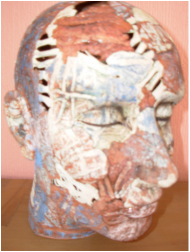
It's a tall order to complete a novel without a single factual error and, in my opinion, it's the internal validity that matters overall. Yet if I set my novel in your front garden and lovingly described a pond with goldfish and water lilies where you had a magnolia tree, it would probably put you off, however good the story was. That's how I'm feeling about some psychological therapists in novels.
Maybe it's because I'm reading especially critically at the moment as part of my effort to improve my own writing but, when the wind blows in a certain direction, I can be rather picky. So I'm doing this little series to get things off my chest – and to promote discussion if anyone's interested. But before we start, let me clarify that I'm offering this from the perspective of a psychologically-informed writer rather than a professional psychologist – that's a bit of me that I gave up a little while ago.
Look out for the first in this occasional series: two for the price of one (a clinical psychologist and a Lacanian psychotherapist in Jonathan Coe's The House of Sleep).
But before that, I'm hoping to bring you more short stories as well as a piece on the end of childhood to complement my interview with Gavin Weston that – through the power of Facebook and Twitter – brought loads of extra visitors to the site at the end of last week.
Meanwhile, your suggestions for psychological therapists in novels would be welcome.





















 RSS Feed
RSS Feed





















